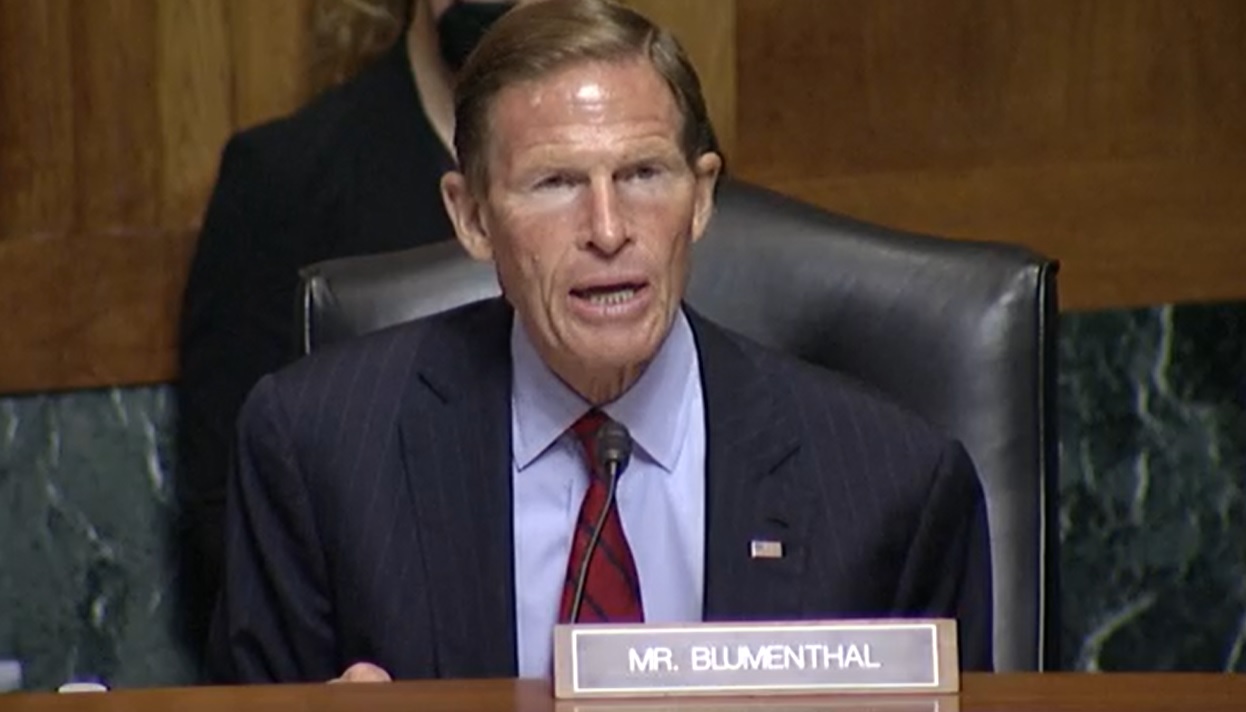Facebook Gets Bipartisan Beatdown in Senate Big Data Hearing
'Coverup,' 'mislead' among word associations with social media giant

The smarter way to stay on top of the multichannel video marketplace. Sign up below.
You are now subscribed
Your newsletter sign-up was successful
Facebook took unfriendly fire from both sides of the aisle Tuesday (Sept. 21) in a Senate Judiciary Committee Antitrust Subcommittee hearing on Big Data.
Sen. Richard Blumenthal (D-Conn.) told Facebook witness Steve Satterfield, VP of privacy and public policy, that the company needed to supply a witness to a hearing next week in the Commerce Consumer Protection Subcommittee, saying that was needed to explain the company's "coverup" of its platforms' negative impact on children.
Satterfield would not say yes definitively, but did say the company was discussing the request.
Facebook has been on the hotseat most recently over a Wall Street Journal article saying it had data showing that negative impact, but downplayed it.
Also Read: Sen. Blumenthal: TikTok Needs Hill Grilling on 'Devious Licks'
Blumenthal and Consumer Protection ranking member Marsha Blackburn (R-Tenn.) had written Facebook CEO Mark Zuckerberg last month asking if it had conducted research on teens that found "a negative effect on children's and teens' mental health or well-being such as increased suicidal thoughts, heightened anxiety, unhealthy usage patterns, negative self-image, or other indications of lower well-being."
Given the subsequent Wall Street Journal article's revelations, Blumenthal said Facebook's responses to the letter were "misleading and evasive," not to mention "directly contradicted" by the journal article.
The smarter way to stay on top of the multichannel video marketplace. Sign up below.
"The simple fact of the matter is that Facebook has known for years that Instagram is directly involved in an increase in eating disorders, mental health issues, and suicidal thoughts – especially for teenage girls," Blumenthal said at the hearing. "Despite that horrifying risk, Facebook is now dead set on pushing Instagram to even younger children. Far from being transparent about this danger...Facebook in fact has been blatantly deceptive and disingenuous about it."
Satterfield said he understood the frustration but disputed the characterization. "The safety and well-being of the teens on our platform is a top priority for the company," he said. "We’re going to continue to make it a priority. This was important research. We're proud that we did it. We're going to continue to, you know, study these really important issues."
Asked by Blumenthal why Facebook had concealed the study if it was proud of it, Satterfield said it did not make such information public as "an important way of encouraging free and frank discussion within the company about hard issues."
On the other side of the aisle, Sen. Josh Hawley (R-Mo.), one of Big Tech's biggest critics, asked Satterfield if teenagers were safe on any of Facebook's platforms, to which Satterfield would only say they were working "really hard" to ensure that. Satterfield also would not commit to not accepting behavioral advertising for products "accessed" by children, telling Hawley that advertising was "very valuable" to Facebook but that it had made changes including limitations on reaching those under 18.
But Satterfield did say that the company had a responsibility to invest the billions of dollars it was investing "to make sure these things don't happen."
Hawley said Facebook had actively and deliberately mislead Congress for years about the impact of its platforms. That was another set of characterizations Satterfield strongly rejected.
Contributing editor John Eggerton has been an editor and/or writer on media regulation, legislation and policy for over four decades, including covering the FCC, FTC, Congress, the major media trade associations, and the federal courts. In addition to Multichannel News and Broadcasting + Cable, his work has appeared in Radio World, TV Technology, TV Fax, This Week in Consumer Electronics, Variety and the Encyclopedia Britannica.

